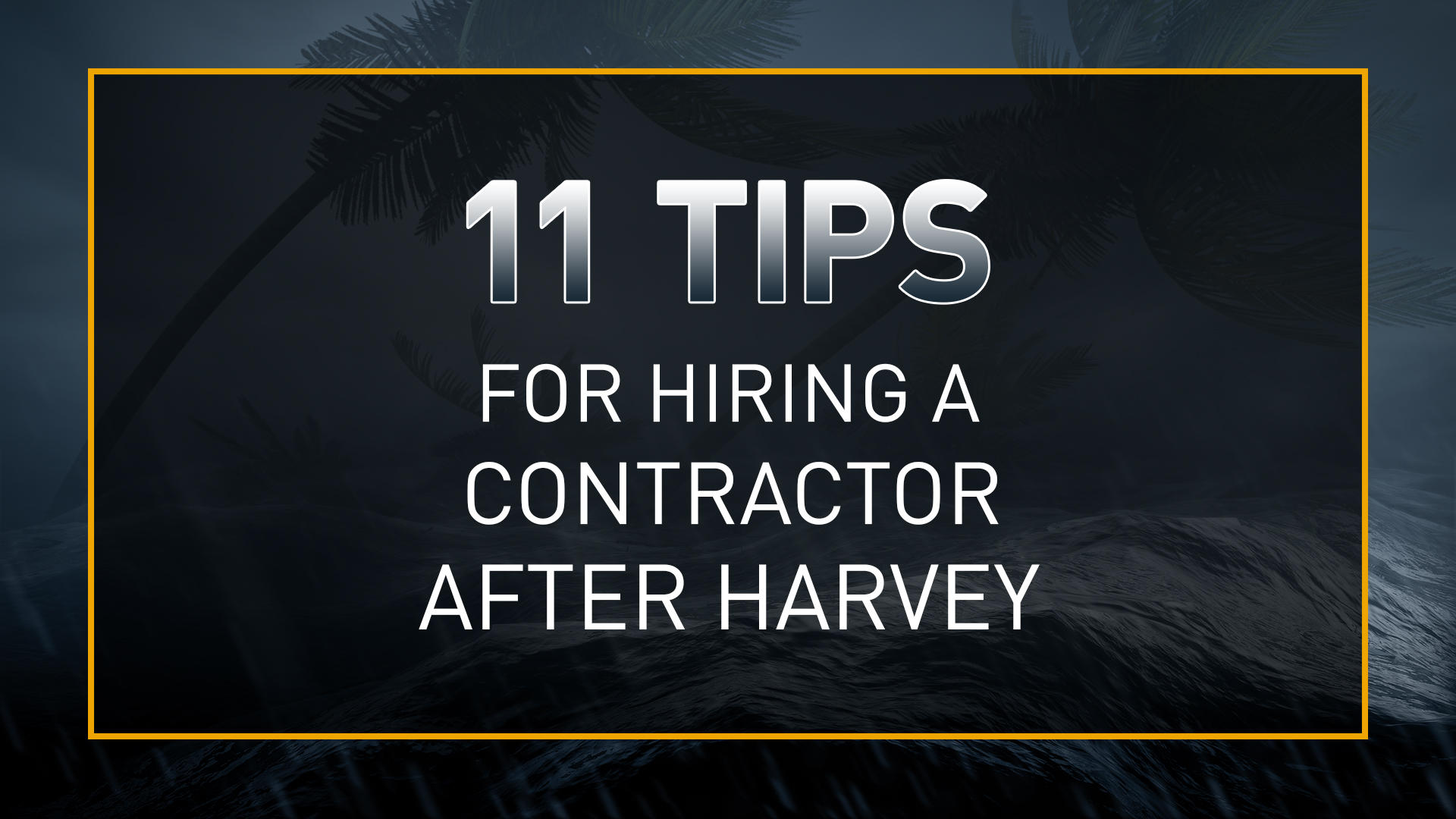As the flood waters in Houston recede, homeowners are now preparing to face the long task of rebuilding. While many are eager to begin the process right away, they need to remember to carefully vet contractors and other workers before hiring them.
The Better Business Bureau says a contractor is anyone you hire to provide the materials and labor to complete a job. Contractors can either focus on specific projects, like plumbing or carpentry, or they can act as the manager of larger projects.
Here are 11 things you should know before you invite a contractor into your home.
- Confirm building permits. Know what kinds of permits are required before beginning your repair project. Your contractor should be responsible for applying for and acquiring the correct ones. Here’s more on what to do if your contractor doesn’t pull permits.
- Shop around. Get multiple quotes to make sure you’re not getting charged too much. If the price given for a particular job runs higher than the norm or sounds too good to be true, it could be a red flag. You can check the business’s grade by searching the Better Business Bureau’s website. Look for the accredited business seal, which indicates the business has gone through a thorough evaluation and meets the BBB’s code of business practices.
- Do your homework. Research contractors and check reviews. Also, check with family members or friends who may have recently used contractors to get their trusted recommendations. You may also want to pick a contractor that specializes in the type of project you need. See this guide from the BBB for more on choosing the right contractor.
- Verify license and insurance. Check with your state office to confirm whether the contractor is licensed to run their business. The license shows that contractors are knowledgeable about building codes and processes. If your contractor does not have a license or insurance, you could be liable for injury or damage. You can check the company’s profile here.
- Talk to your insurance adjuster. Some contractors have experience with working with insurance companies and that can speed up the process of getting the claims paid and repairs done.
- Meet in person. The right person for the job will be easy to communicate with. Use this check list from the Texas Department of Insurance for how to protect yourself from contractor scams. You may also want to ask for samples to check the quality of the work.
- Get everything – especially estimates and contracts – in writing. Angie’s List recommends getting details on everything from detailed time frames, the total cost, payment arrangements to your contractor’s license number, project description and more.
- Ask about liens. Under mechanic’s lien laws in some states, anyone who worked on or supplied materials to your project, but was not paid by the contractor, could hold you liable for the bill. A lien waiver is a statement from the contractor affirming that all suppliers and subcontractors have been paid for their work. If a contractor has a lien against him, Popular Mechanics says it’s best to move on.
- Never pay in full. The BBB recommends staggering payment so the final installment is made at the time the job is completed. It’s also important to keep records of the transactions, so DO NOT pay cash. If you have to write a check, make sure it’s written out to a company and not an individual.
- Ask for a receipt. Once the contractor completes the project, request a copy of a receipt, preferably one that says “Paid in Full,” so it’s indisputable that the contractor has completed the work asked. Also, do a final walkthrough to be sure everything has been completed before signing off on the renovation.
- Hold on to documents, even after work stops. Keep a copy of your contract in case you have to reference it in the future, or if any questions arise after the work is complete.
Sources:

